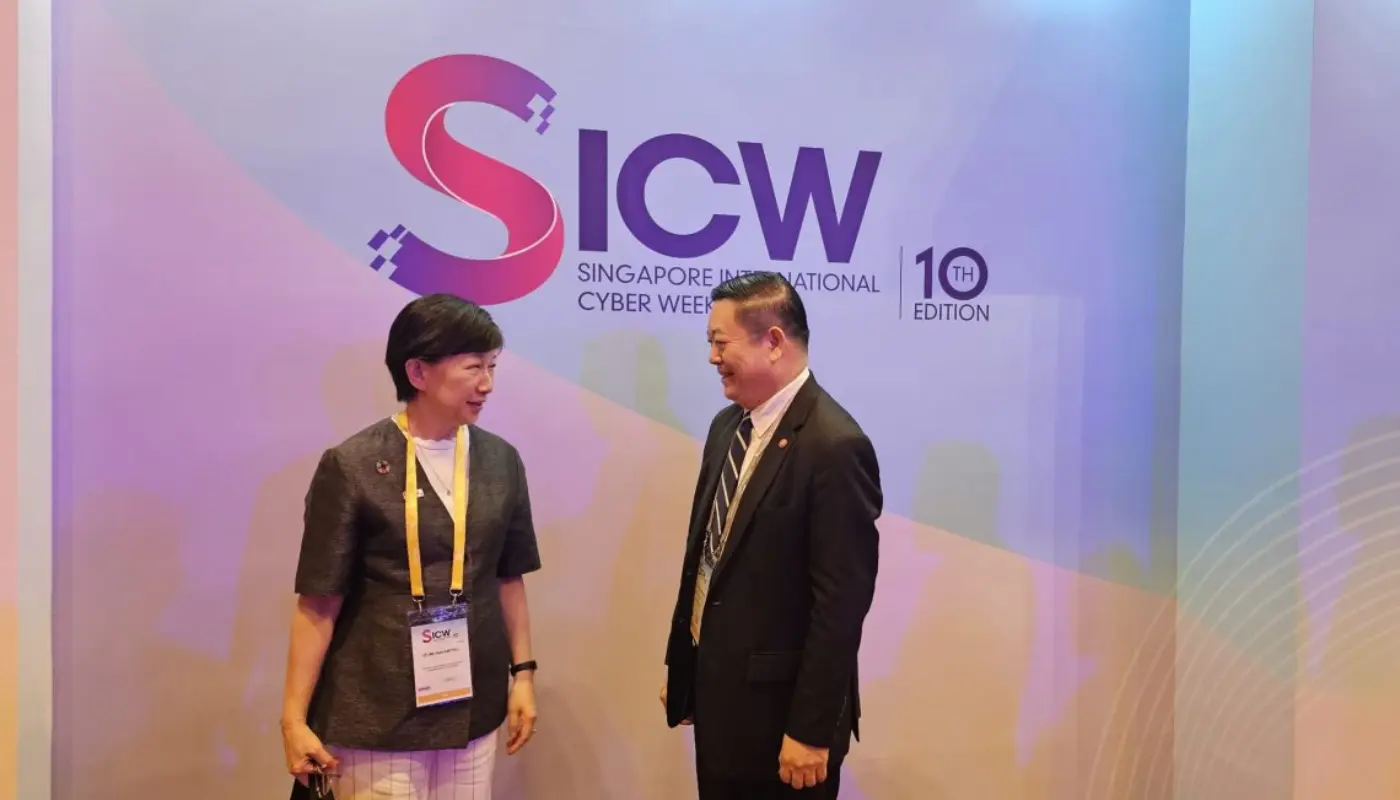SINGAPORE – In a timely diplomatic exchange, Dr. Kao Kim Hourn, Secretary-General of the Association of Southeast Asian Nations (ASEAN), met this week with Izumi Nakamitsu, Under-Secretary-General and High Representative for Disarmament Affairs at the United Nations (UN).
The meeting, held on 22 October 2025 in Singapore during 10th ASEAN Ministerial Conference on Cybersecurity, centred around cooperation in disarmament, non-proliferation and regional security.
Key Themes and Agenda
During their meeting, Mr Kao and Ms Nakamitsu explored how ASEAN and the UN could align efforts to bolster the region’s disarmament architecture. The dialogue touched on nuclear-weapon-free-zone initiatives, conventional arms control, and the role of confidence-building measures in Southeast Asia.
In remarks preceding the session, the ASEAN Secretariat noted the “pull-aside meeting” underscored the importance of reinforcing collaboration between ASEAN and UNODA, the UN Office for Disarmament Affairs in supporting a stable, peaceful Indo-Pacific region.
Regional Relevance for Southeast Asia
ASEAN’s engagement with the UN disarmament agenda carries particular significance for Southeast Asia. The region has long maintained the Treaty on the Southeast Asia Nuclear‑Weapon‑Free Zone (SEANWFZ), committing member states to keep their territories free of nuclear weapons and to support global disarmament goals. For example, ASEAN states and Vietnam recently reaffirmed their backing of the Treaty during UN deliberations.
By meeting with the UN’s disarmament lead, ASEAN signals its intention to stay actively engaged in initiatives ranging from nuclear non-proliferation to conventional arms transparency. As global tensions and defence spending continue to rise, the region’s voice in multilateral disarmament debates appears to be growing more prominent.
Implications and Forward Outlook
The outcomes of the meeting hint at several potential follow-on activities:
- Strengthened ASEAN-UNODA partnership frameworks, possibly including joint workshops, expert delegations or regional dialogues on disarmament and non-proliferation.
- A renewed push for ASEAN’s active contribution to the international treaty architecture, including the Treaty on the Non‑Proliferation of Nuclear Weapons (NPT) review process and other arms-control regimes.
- Emphasis on the cross-cutting link between disarmament and sustainable development, particularly in a region experiencing economic transformation and strategic flux.
In her recent statements, Ms Nakamitsu emphasised that disarmament and development are deeply connected: “the analysis aims to serve as a foundational document for rethinking the relationship between security, disarmament, and development.”
For ASEAN, whose upcoming summit in Malaysia is already drawing global attention, the meeting with the UN disarmament lead adds a layer of diplomatic weight and indicates that security and arms-control issues may feature more prominently in the region’s agenda.
Local Context for Malaysia and Beyond
Given that Malaysia is hosting the 47th ASEAN Summit in late October, the timing of this meeting underlines how regional affairs extend into global diplomatic forums such as New York. For local observers in Kuala Lumpur and across Southeast Asia, the session reaffirms that ASEAN’s agenda is not purely economic or environmental, but also touches on security-sensitive domains like arms control.
The cooperation between ASEAN and UNODA may, in time, translate into regional capacity-building initiatives that benefit member states, including those in Bangladesh’s neighbourhood, by bolstering transparency, governance and regional stability around weapons proliferation risks.
As the world watches rising geopolitical tensions and shifting power dynamics, this meeting marks a subtle but meaningful step in ASEAN’s evolving role as a regional security interlocutor aligned with global disarmament efforts.
Sources: ASEAN Secretariat, United Nations Office for Disarmament Affairs







